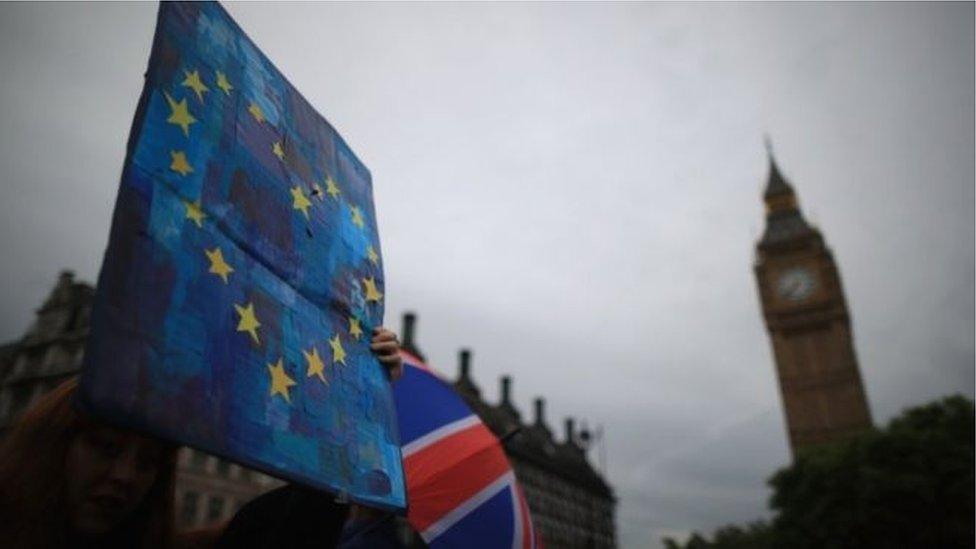Brexit would be 'catastrophic for peace process'
- Published
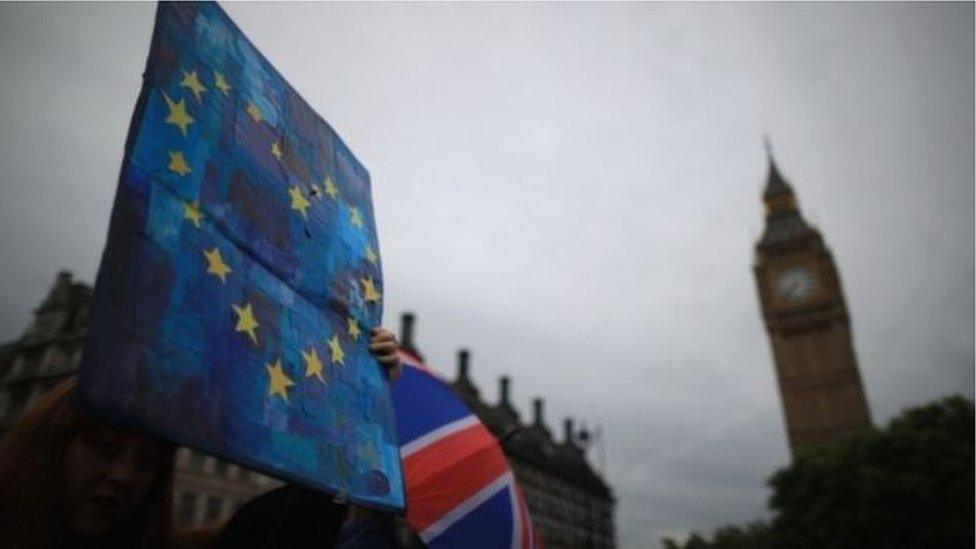
Separate legal challenges to Brexit are being heard in Belfast
Withdrawal from the EU would have a "catastrophic effect" on Northern Ireland's peace process, a barrister has told Belfast's High Court.
Ronan Lavery QC was speaking as a landmark legal bid to halt the UK's planned departure from the European Union got under way on Tuesday.
Separate proceedings have been brought - one by Raymond McCord, the father of a loyalist paramilitary murder victim.
The other has been brought by a cross-party group of MLAs.
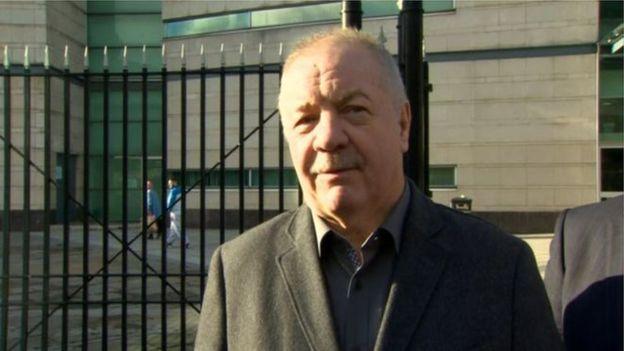
Raymond McCord has campaigned for Troubles victims
Mr McCord's son, Raymond Jnr, was murdered by the Ulster Volunteer Force (UVF) in 1997, and Mr McCord is taking the case amid concerns that European peace money, which goes towards victims of the Troubles, may be discontinued.
His barrister, Mr Lavery, argued that the Good Friday Agreement in 1998 ceded control of the sovereignty of Northern Ireland to the people of Northern Ireland themselves.
Major constitutional changes such as leaving the EU could not therefore be imposed by a Westminster government, he said.
Even though the UK voted overall to leave the EU, a 56% majority in Northern Ireland wanted to remain.
Mr Lavery said leaving the EU would affect the peace process and "that delicate constitutional balance which we have reached".
He also argued that Brexit could see the repeal of the Human Rights Act and withdrawal from the European convention on Human Rights, upon which his client, Mr McCord, had relied.
He suggested that, post-Brexit, the creation of a united Ireland would require the consent of all the other 27 EU members states because it would mean readmitting Northern Ireland to the EU.
No parliamentary authorisation
Later, arguments were presented on behalf of the cross-party group of politicians, including Alliance MLA David Ford, SDLP leader Colum Eastwood, Sinn Féin MLA John O'Dowd and Steven Agnew of the Green Party.
David Scoffield QC suggested that the British government was not legally obliged to trigger Article 50 simply because of the results of the EU Referendum.
He pointed out that, in his view, the Westminster government's plan to use the Royal Prerogative to begin Brexit proceedings, rather than the authorisation by Parliament, is unlawful.
He said his clients felt that the Brexit decision should be examined and voted on by Parliament, or failing that, by the Stormont Assembly.
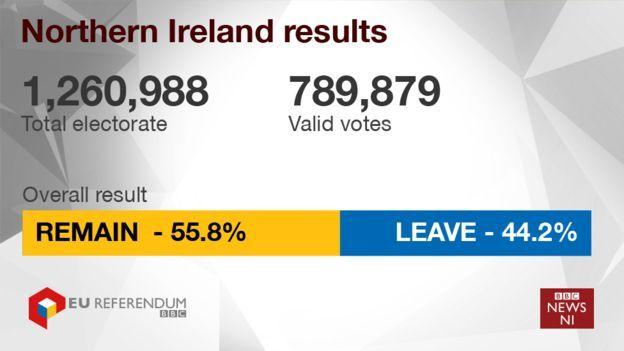
The majority of NI voters wished to remain in the EU
The MLAs are backed by representatives of the voluntary and community sector in Northern Ireland.
They have identified a series of obligations that must be satisfied before Article 50 can be triggered, including requirements for parliamentary legislation and the consent of the Northern Ireland Assembly.
On Sunday, the prime minister said she would trigger Article 50 by the end of March 2017.
Similar legal challenges are already under way in London.
The hearing is expected to last two days.
- Published3 October 2016
- Published27 September 2016
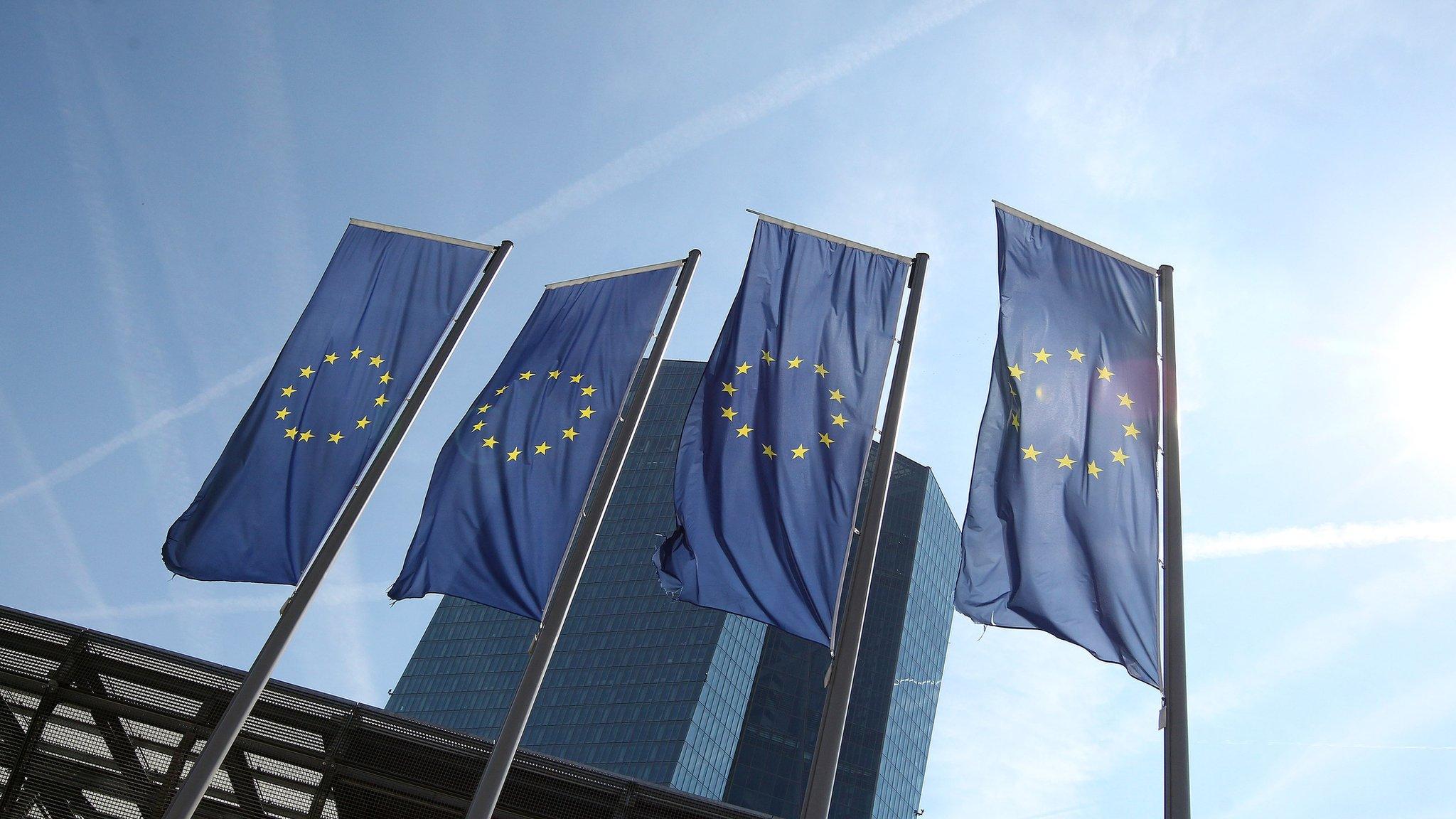
- Published11 August 2016
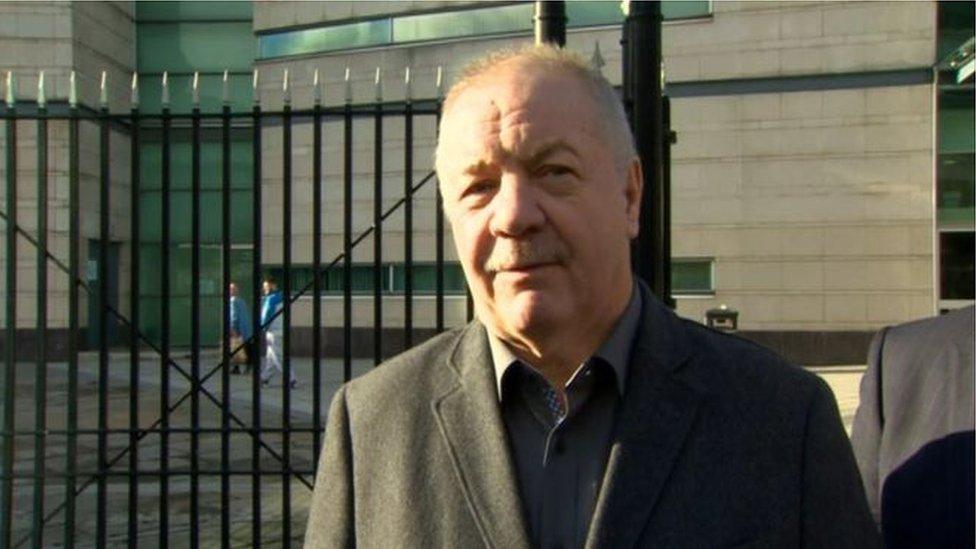
- Published25 July 2016
